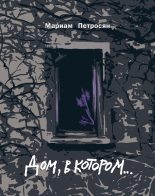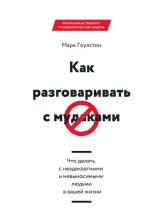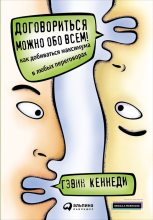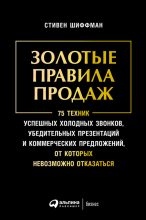coffee and smiling with sceptical good humour, chipped in and explained all over again, in different words, about the making of drugs and the progress of science. Also, he offered Gideon a present.
There was silence after this further explanation, and then Gideon remarked indifferently that he could not remember the root. His face was sullen and hostile, even when he looked at the Farquars, whom he usually treated like old friends. They were beginning to feel annoyed; and this feeling annulled the guilt that had been sprung into life by Gideon's accusing manner. They were beginning to feel that he was unreasonable. But it was at that moment that they all realized he would never give in. The magical drug would remain where it was, unknown and useless except for the tiny scattering of Africans who had the knowledge, natives who might be digging a ditch for the municipality in a ragged shirt and a pair of patched shorts, but who were still born to healing, hereditary healers, being the nephews or sons of the old witch doctors whose ugly masks and bits of bone and all the uncouth properties of magic were the outward signs of real power and wisdom.
The Farquars might tread on that plant fifty times a day as they passed from house to garden, from cow kraal to mealie field, but they would never know it.
But they went on persuading and arguing, with all the force of their exasperation; and Gideon continued to say that he could not remember, or that there was no such root, or that it was the wrong season of the year, or that it wasn't the root itself, but the spit from his mouth that had cured Teddy's eyes. He said all these things one after another, and seemed not to care they were contradictory. He was rude and stubborn. The Farquars could hardly recognize their gentle, lovable old servant in this ignorant, perversely obstinate African, standing there in front of them with lowered eyes, his hands twitching his cook's apron, repeating over and over whichever one of the stupid refusals that first entered his head.
And suddenly he appeared to give in. He lifted his head, gave a long, blank angry look at the circle of whites, who seemed to him like a circle of yelping dogs pressing around him, and said: 'I will show you the root.
They walked single file away from the homestead down a kaffir path. It was a blazing December afternoon, with the sky full of hot rain-clouds. Everything was hot: the sun was like a bronze tray whirling overhead, there was a heat shimmer over the fields, the soil was scorching underfoot, the dusty wind blew gritty and thick and warm in their faces. It was a terrible day, fit only for reclining on a veranda with iced drinks, which is where they would normally have been at that hour.
From time to time, remembering that on the day of the snake it had taken ten minutes to find the root, someone asked: 'Is it much farther, Gideon? And Gideon would answer over his shoulder, with angry politeness: 'I'm looking for the root, baas. And indeed, he would frequently bend sideways and trail his hand among the grasses with a gesture that was insulting in its perfunctoriness. He walked them through the bush along unknown paths for two hours, in that melting destroying heat, so that the sweat trickled coldly down them and their heads ached. They were all quite silent: the Farquars because they were angry, the scientist because he was being proved right again; there was no such plant. His was a tactful silence.
At last, six miles from the house, Gideon suddenly decided they had had enough; or perhaps his anger evaporated at that moment. He picked up, without an attempt at looking anything but casual, a handful of blue flowers from the grass, flowers that had been growing plentifully all down the paths they had come.
He handed them to the scientist without looking at him, and marched off by himself on the way home, leaving them to follow him if they chose.
When they got back to the house, the scientist went to the kitchen to thank Gideon: he was being very polite, even though there was an amused look in his eyes. Gideon was not there. Throwing the flowers casually into the back of his car, the eminent visitor departed on his way back to his laboratory.
Gideon was back in his kitchen in time to prepare dinner, but he was sulking. He spoke to Mrs Farquar like an unwilling servant. It was days before they liked each other again.
The Farquars made enquiries about the root from their labourers. Sometimes they were answered with distrustful stares. Sometimes the natives said: 'We do not know. We have never heard of the root. One, the cattle boy, who had been with them a long time, and had grown to trust them a little, said: 'Ask your boy in the kitchen. Now, there's a doctor for you. He's the son of a famous medicine man who used to be in these parts, and there's nothing he cannot cure.
Then he added politely: 'Of course, he's not as good as the white man's doctor, we know that, but he's good for us.
After some time, when the soreness had gone from between the Farquars and Gideon, they began to joke: 'When are you going to show us the snake-root, Gideon? And he would laugh and shake his head, saying, a little uncomfortably: 'But I did show you, missus, have you forgotten?
Much later, Teddy, as a schoolboy, would come into the kitchen and say: 'You old rascal, Gideon! Do you remember that time you tricked us all by making us walk miles all over the veld for nothing? It was so far my father had to carry me!
And Gideon would double up with polite laughter. After much laughing, he would suddenly straighten himself up, wipe his old eyes, and look sadly at Teddy, who was grinning mischievously at him across the kitchen: 'Ah, Little Yellow Head, how you have grown! Soon you will be grown up with a farm of your own…







